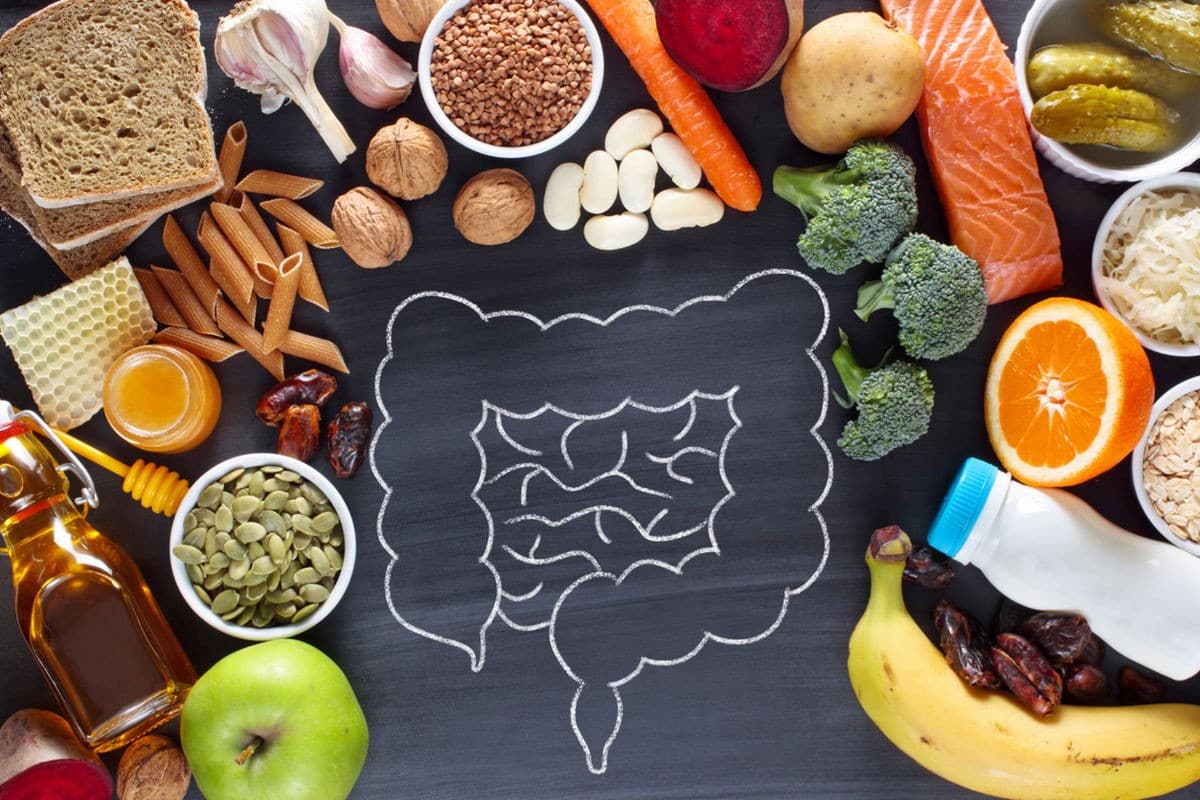It is no secret that digestion plays a crucial role in our overall health and wellbeing. Although several digestive organs work together in this process, the breakdown food into smaller molecules that can be absorbed and utilised by the body occurs in the stomach. Unfortunately, external factors such as stress, diet, and medications among many others can disrupt digestion in the stomach contributing to symptoms of abdominal pain, gas, bloating, constipation, and heartburn. Natural substances such as herbs and enzymes can be helpful in providing extra support to optimise digestion and alleviate discomfort.
Herbs
For centuries, traditional medicine systems have relied on herbs for their therapeutic properties in aiding digestion. Some to note include:
Ginger
Ginger contains polyphenols like gingerol which have anti-inflammatory properties. It has been found to accelerate gastric emptying which can help to prevent abdominal pain, bloating, early satiety, fullness, belching, and nausea.
Gentian
A bitter herb, gentian has been used traditionally to stimulate the production of gastric juices including saliva, gastric acid and bile, which can increase appetite and improve digestion.
Chamomile
Traditionally, chamomile has been used as a digestive relaxant to treat various gastrointestinal disturbances due to its anti-inflammatory and antioxidant properties. It can be useful for soothing digestive discomfort by reducing inflammation in the stomach lining and promoting overall digestive health.
Liquorice
Liquorice root contains potent anti-inflammatory compounds that reduce cytokine production and promote mucous production in the stomach lining offering a protective effect to the digestive tract.

Enzymes
Digestive enzymes facilitate the breakdown of food into smaller, absorbable molecules enabling nutrients to be readily absorbed by the body. The main digestive enzymes include:
– Amylase: breaks down carbohydrates into simpler sugars;
– Protease: breaks down protein into amino acids; and
– Lipase: breaks down fats into fatty acids.
Other enzymes that have been shown to have therapeutic effects include bromelain, found in pineapple and papain, found in papaya. These enzymes not only help to break down proteins but their anti-inflammatory properties have been shown to have a protective effect against the development of intestinal inflammation.
Conclusion
Herbs and enzymes can have a profound impact on the functioning of the stomach and overall digestion. The use of these natural substances can not only aid in the breakdown of our food, but also soothe irritation and inflammation alleviating associated symptoms. While many can be found in a varied whole food diet, supplementation offers a convenient way to utilise their therapeutic potential.
Reference List
1. Nikkhah Bodagh, M., Maleki, I. and Hekmatdoost, A. (2018). Ginger in Gastrointestinal disorders: a Systematic Review of Clinical Trials. Food Science & Nutrition, [online] 7(1), pp.96–108. doi: https://doi.org/10.1002/fsn3.807.
2. Gupta, S. (2010). Chamomile: A herbal medicine of the past with a bright future. Molecular Medicine Reports, [online] 3(6). doi: https://doi.org/10.3892/mmr.2010.377.
3. Goepp, J. (2008). Natural Solutions to Chronic Stomach Problems. [online] Available at: http://www.maehurst.com/archive/natural-solutions-to-chronic-stomach-problems.pdf.
4. Madkhali, J.Y., Hussein, R.H. and Alnahdi, H.S. (2023). Therapeutic effect of bromelain and papain on intestinal injury induced by indomethacin in male rats. International journal of health sciences, [online] 17(5), pp.23–30. Available at: https://www.ncbi.nlm.nih.gov/pmc/articles/PMC10484068/ [Accessed 19 Mar. 2024].
Work with Australia’s Leading Pharmaceutical Manufacturer
Businesses seeking an alternative pharmaceutical manufacturer in Australia need look no further than Lipa Pharmaceuticals. We are an 8-time winner of Australia’s High Quality Manufacturer Award for complementary medicines and have the capability to manufacture high volumes of vitamins, health food supplements, and over-the-counter medication.
With over 30 years of industry experience and fully-equipped production facilities, we can work with your business to produce custom products in a private label or contract manufacturing arrangement. Get in touch with us today to find out how to partner with our cost-effective pharmaceutical manufacturing solutions in Australia.
